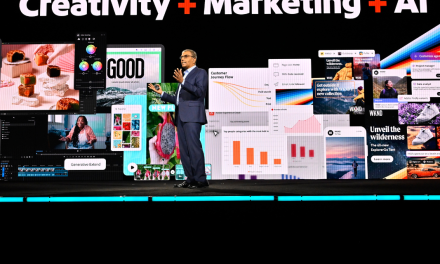This case study showcases how V-Key improves mobile security more accessible to smartphone users with Sales Cloud deployment by Salesforce.
V-Key is a Singapore-based cybersecurity software company, the inventor of the first virtual secure element worldwide called V-OS. The company provides verification, authorization, and security solutions across mobile and digital platforms.
V-OS is deployed by top mobile payment providers, banks, and governments worldwide because of its strong security base, suitable for any mobile application. The company’s solutions enable enterprises to carry out secured mobile transactions, such as cloud-based payments and mobile banking authentication, without using hardware. With V-OS, software security becomes the new hardware.
Goal
V-Key aimed to use a software smart chip in mobile apps. It replaces the physical chip on a plastic credit card that traditionally authenticates and authorises payment transactions. Hence, the company wants to provide a secure virtual chip with mobile apps that users downloaded on their smartphone or any mobile device.
V-Key aimed to improve smartphone users’ experience by providing highly secure applications for businesses and government agencies using mobile banking and other payment applications. The company wanted its clients to comply with mobile transactions and cloud-based payments’ strict regulatory and security requirements.
Challenges
V-Key faced three challenges in creating a cutting-edge virtual chip for greater mobile security for businesses and consumers alike, which include the following:
- Rigorous testing needed: V-Key technology underwent thorough testing to replace vulnerable security methods, including passwords, short messaging services (SMS), and hardware tokens, with a smartphone-based security software solution.
- Scaling sales team: Raymond Lee, the COO at V-Key, became problematic when they experienced rapid growth. The company had to scale up its sales team for optimum support from six to 20 members.
- Staying on top of customer relationships: V-Key needs to keep up with customer engagement timelines that usually stretch from six to nine months. Furthermore, staying on top of broader and more complex customer relationships became more challenging than ever.
Solutions
Choosing Salesforce solution for centralised info hub: The solution V-Key chose was Salesforce. This solution provides the necessary integration in managing pre-sales, marketing, sales, professional services, and customer support without needing multiple spreadsheets.
Deploying Sales Cloud solution: The company deployed Sales Cloud, and the complete setup only took four weeks without needing external developers. V-Key retired its legacy customer relationship management (CRM) with the deployment of Sales Cloud. With the integration of Pardot with the company’s existing customer database, its sales team eventually improved the company’s lead generation rates.
Tracking opportunities: Sales Cloud enables V-Key to track opportunities and provide real-time updates useful in sales meetings, saving time from waiting for results using the previous traditional system. By doing so, the company can create better sales and marketing strategies for target customers.
Securing the apps: V-Key projects to achieve one billion V-OS installations globally, transitioning V-Key to become a platform from a product company. The company understands that securing money movement is crucial nowadays and in the future. Hence, V-Key invests in research development and innovation to become a universal digital identity.
According to the VP of Global Sales of V-Key, Peter Mah, the Sales Cloud by Salesforce makes the pipeline more visible than ever to the sales team and the entire company. Everyone benefits from absolute transparency, resulting in a very validated pipeline, including enhancing the consumer experience.
The vision of V-Key is to become a leading trusted universal digital identity provider through its platform that people can share across all mobile apps. It means that consumers won’t share their digital identity between mobile apps, such as gaming, food, rid-sharing, and banking apps, all integrated using V-OS.



















